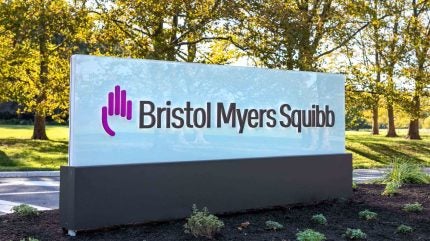
Bristol Myers Squibb (BMS) has posted a decrease in net income of $1.7bn during the second quarter (Q2) of 2024, a 19% drop compared to $2.1bn for the same period of 2023.
The decline was attributed primarily to higher interest expenses from new debt issued to fund recent acquisitions.
Despite the decline in net income, the company’s non-GAAP [generally accepted accounting principles] net earnings rose to $4.2bn, up from $3.7bn in the previous year.
For the three months ended 30 June 2024, revenues also saw an increase, reaching $12.2bn. This is a 9% rise – 11% when adjusted for foreign exchange impacts – from $11.2bn in Q2 2023.
The growth was driven by the company’s growth portfolio and the performance of Eliquis.
In the US market, revenues surged by 13% to $8.8bn, attributed mainly to the growth and legacy portfolios.
Access the most comprehensive Company Profiles on the market, powered by GlobalData. Save hours of research. Gain competitive edge.

Your download email will arrive shortly
We are confident about the unique quality of our Company Profiles. However, we want you to make the most beneficial decision for your business, so we offer a free sample that you can download by submitting the below form
By GlobalData
However, international revenues experienced a slight decline of 1% to $3.4bn. This was primarily due to a negative 7% impact from foreign exchange and the performance of Revlimid, partly offset by the cancer drug Opdivo.
Earnings per share (EPS) on a GAAP basis fell to 0.83 from 0.99 in the same period of 2023.
The GAAP gross margin also saw a decrease from 74.4% to 73.2%, mainly due to a one-time impairment charge related to marketed product rights.
On a non-GAAP basis, the gross margin showed improvement, increasing from 75.0% to 75.6%, due to a favourable product mix.
The company raised certain 2024 line-item guidance with total revenues now expected in the range of upper end of low single-digits while diluted EPS is expected to be in the range of $0.6 to $0.9.
Bristol Myers Squibb board chair and CEO Christopher Boerner said: “Our second quarter results reflect progress against our strategy to position BMS for long-term, sustainable growth.
“As we move into the second half of the year, we remain focused on prioritising opportunities with the greatest growth potential and impact for patients, including the anticipated US launch of KarXT. We’re also driving operational excellence throughout the company, becoming more agile and strengthening execution.”
The company announced that the European Medicines Agency (EMA) will begin a review of its application for Opdivo (nivolumab)/Yervoy (ipilimumab) combination’s use in patients with advanced liver cancer.
